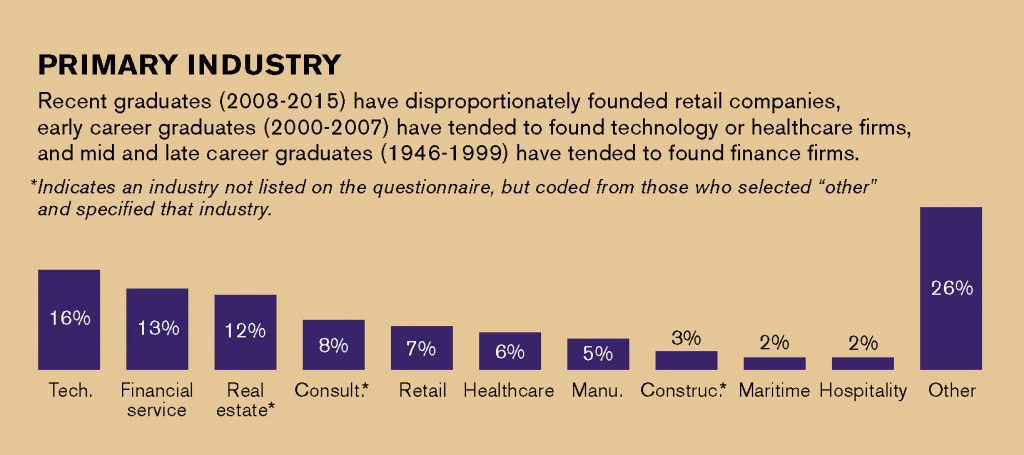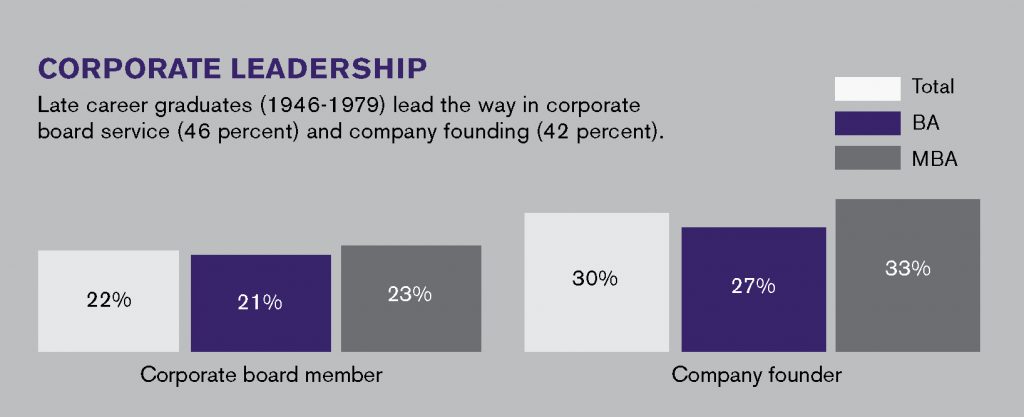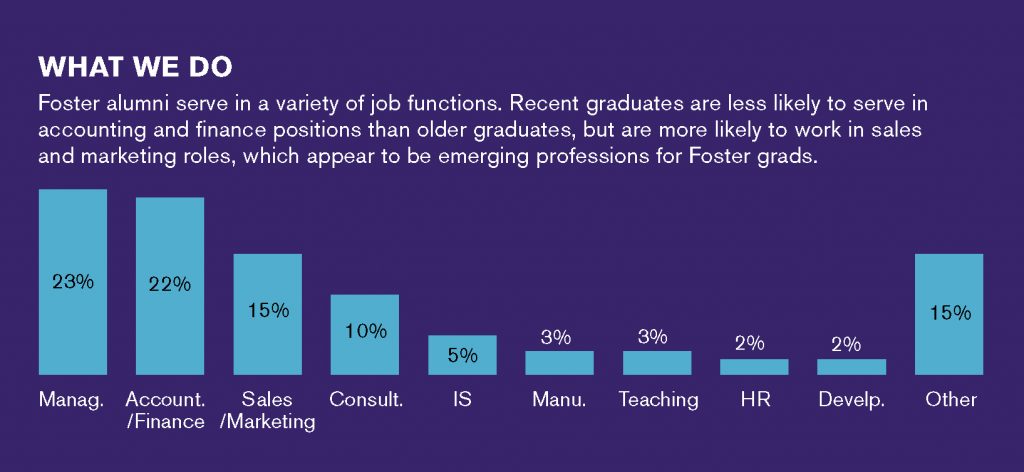The Foster Effect
Alumni survey measures the magnitude of the UW Foster School’s economic impact
 How do you take the measure of a business school?
How do you take the measure of a business school?
You could look to the profusion of rankings and their byzantine combinations of factors that range from employer satisfaction to academic reputation to alumni advancement to return on investment. Or you could consider admissions selectivity. Average SAT and GMAT scores. Job placement rates. Starting salaries. Teacher ratings. Program innovations. Longevity.
The Foster School, a fixture among the nation’s upmost echelon, earns high marks in each of these metrics.
But the bottom line of any business school is economic impact. Does it spur job growth, catalyze innovation, advance prosperity? Does it create futures?
The results of the Foster School’s recent alumni survey calculate a profound impact—on both alumni careers and the economy of the Pacific Northwest and beyond.
According to Hemispheres, the Seattle-based research firm that conducted the survey, the data collected supports two central—and complementary—conclusions:
 Foster alumni are successful in the business world
Foster alumni are successful in the business world
- Employment rate for recent graduates (2008-2015) is near 100 percent.
- More than a third of late career graduates (1946-1979)—and nearly a quarter of all Foster graduates—hold c-level positions.
- Nearly half of Foster grads will have served on a corporate board by the end of their careers.
- One-in-five recent graduates have founded a company in the first eight years out.
- Alumni overwhelmingly feel that the school prepared them for professional success.
Foster alumni success is a powerful economic driver
- Foster graduates have created an estimated 17,000 companies, 910,000 jobs, and more than $100 billion in annual revenues generated.
- More than two-thirds of those companies operate in Washington state.
- Nearly one-third of all Foster alumni have started at least one business.
- A growing number of—especially MBA—students come to Foster from out of state and remain in the region for the majority of their careers.
- Foster alumni transplants have created an estimated 1,283 companies and 68,000 jobs, generating $7.6 billion in revenues for the Washington state economy.
Companies Founded (estimated*)
Foster-educated company founders – 15,000
Average number of firms founded (still in business) – 1.14
Companies founded – 17,100
Jobs created – 909,378
Annual revenues generated – $100.7 billion
Primary Industry
Recent graduates (2008-2015) have disproportionately founded retail companies, early career graduates (2000-2007) have tended to found technology or healthcare firms, and mid and late career graduates (1946-1999) have tended to found finance firms.
Late career graduates (1946-1979) lead the way in corporate board service (46 percent) and company founding (42 percent).
Foster alumni serve in a variety of job functions. Recent graduates are less likely to serve in accounting and finance positions than older graduates, but are more likely to work in sales and marketing roles, which appear to be emerging professions for Foster grads.
Alumni rate their overall experience at the Foster School as overwhelmingly positive. And the school’s high marks are consistent across degree type and graduation year.
Alumni overwhelmingly say that the Foster School prepares them to succeed in business, with over 93 percent saying they were very well prepared or well prepared for success.
About the Survey
More than 2,500 of the school’s approximately 50,000 living alumni participated in the survey, representing every degree program and distributed across four eras. This sample size and distribution are considered statistically reliable within plus-or-minus two points at a 95 percent confidence level.




